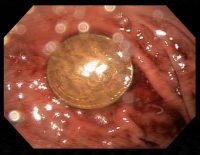World Lupus Day: AIIMS Rheumatology Head talks about tips during Covid-19 pandemic, recommends bringing under PMJAY Scheme

It is ten times more common in females in their reproductive age group but can affect any age group. the prevalence of SLE varies from 5.8 to 130 per 100,000 population, says Dr. Uma Kumar
Systemic lupus erythematosus or Lupus is a systemic autoimmune disease which affects multiple vital organs of the human body like kidneys, lungs, heart, nervous system etc. during the course of illness, says AIIMS Rheumatology Head Dr. Uma Kumar.
It is ten times more common in females in their reproductive age group but can affect any age group. the prevalence of SLE varies from 5.8 to 130 per 100,000 population, adds she.
She says that in the majority of cases, the disease shows symptoms like fever, skin rashes particularly butterfly rash over the face, oral ulcers, joint pain/arthritis and fatigue. Chronic ongoing inflammation in untreated patients can lead to the development of various comorbidities like heart attacks, hypertension, diabetes, stroke.
Definite etiology of lupus is largely unknown but many environmental factors like viral infections, ultraviolet light, smoking, air pollution and certain drugs are known to trigger the disease process in genetically predisposed individuals. But, it is not hereditary or contagious.
30% of lupus patients are found to have antiphospholipid antibodies which further increase the chances of miscarriage, still births, clogging of blood vessels.
How can lupus affect pregnancy or the newborn?
Lupus can worsen during pregnancy, therefore, pregnant women with SLE are considered high-risk pregnancies. For successful outcome close supervision under rheumatologist together with an obstetrician is a must. Certain specialised immunological blood tests which influence pregnancy outcome, are done to risk stratify pregnancy. These women require close observation during pregnancy, delivery, and the postpartum period. Women with SLE who have antiphospholipid antibodies may need blood-thinning medications (aspirin, he durinparin during pregnancy to prevent miscarriages.
Certain autoantibodies can cross placenta to reach foetus and can result in a condition called neonatal lupus where electrical activity of baby’s heart can get altered leading to heart block.
There is no permanent cure for lupus but the majority of patients lead a normal life on treatment. Wide variety of drugs like Hydroxychloroquine, mycophenolate_mofetil, steroids, cyclophosphamide, Azathioprine, Calcineurin inhibitors, Rituximab etc are administered depending upon the extent, the severity of lupus, patient preference.
Tips to take care during ongoing COVID 19 pandemic
1. Don’t stop your medications
3. Avoid going out of home
4. Don’t invite any outsider to your home
5. Maintain a physical distance of 2 meters
6. Frequently wash your hand with soap and water for 20 second or use hand sanitizer with at least 60% alcohol content
7. Avoid touching your face without washing your hands
8. Keep separate foot ware for in-house use
9. Use face mask when going out
9. Have 6-8hours of good sleep
10. Practice yoga
11. Be positive
Despite being on medicine patients can develop flare of disease periodically which is usually managed by varying medicines. Since ultraviolet light can precipitate flares, patients should avoid sun exposure. Sunscreens and covering the extremities with clothing can be helpful. Abruptly stopping medications, especially corticosteroids, should be avoided.
It is important for families and the society in general to understand this disease ‘Lupus’ which can affect anyone at any point in time and not to stigmatize women with lupus. The financial burden of this disease is tremendous because of prolonged treatment with multiple drugs, unexpected hospitalisations, frequent monitoring visits and check-ups and no recognition of lupus under the ‘critical illness’ label by insurance companies, in India. Also, this illness is not covered under Ayusman Bharat or PMJAY.
Dr. Uma Kumar, Professor & Head, Department of Rheumatology, AIIMS (New Delhi)








Comments